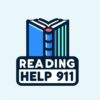As parents and educators it is important to identify potential reading difficulties early in a child’s reading development. Early detection of a reading issue can be critical to the child’s reading success. The following reading skills are important and can raise a red flag if the reader is showing problems in any of these areas. Struggling may not necessarily mean there is a reading disability but may simply mean the reader needs more practice with a certain skill.
- Letter Recognition: Difficulty in identifying and naming letters of the alphabet can be an early indicator of potential reading difficulties. A child may find it challenging to distinguish between letters or remember their names and sounds.
- Challenges with Phonics: Phonics skills are fundamental for decoding words. It is important to be able to connect letter sounds to their corresponding symbols and to be able to sound out unfamiliar words.
- Reading Fluency: Fluent reading is essential for comprehension. Frequent pauses or choppy reading may be a red flag.
- Sight Words: Sight words are high-frequency words that children should recognize instantly, as they often appear in various texts. Trouble with sight words can affect reading fluency.
- Comprehension: Struggling to understand the meaning of a text or unable to answer basic comprehension questions can indicate challenges in decoding or grasping the meaning of words.
- Avoidance of Reading: If a child shows reluctance to read, it may be a sign of reading difficulties or low confidence in their reading abilities.
- Reversing Letters or Words: Frequent letter or word reversals beyond the typical age can be an indication of potential reading difficulties.
- Difficulty in Rhyming: Being able to rhyme and recognize rhyming words is important. A child’s difficulty in recognizing and generating rhymes can impact their ability to manipulate sounds in words.
- Progress Over Time: If a child is not showing progress in their reading skills over time, despite regular practice and support, it may be a red flag for potential reading challenges.
A child’s reading success can improve with early intervention. Children learn to read in their own unique way and occasional struggles may not indicate an issue. It is important to notice persistent issues and seek guidance from educators or reading specialists. Keep an open communication with teachers and stay involved in your child’s reading journey.



